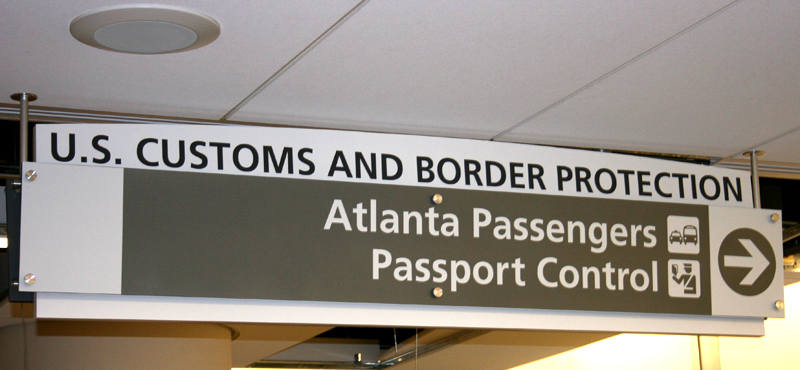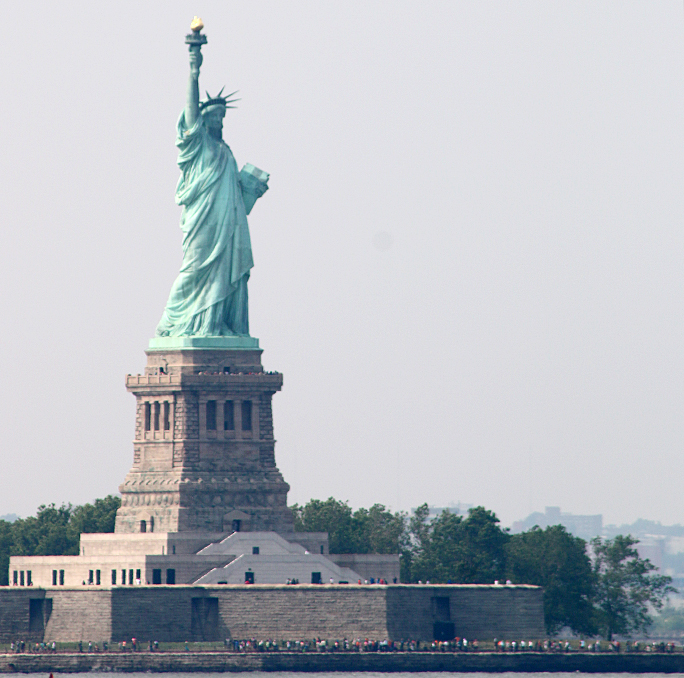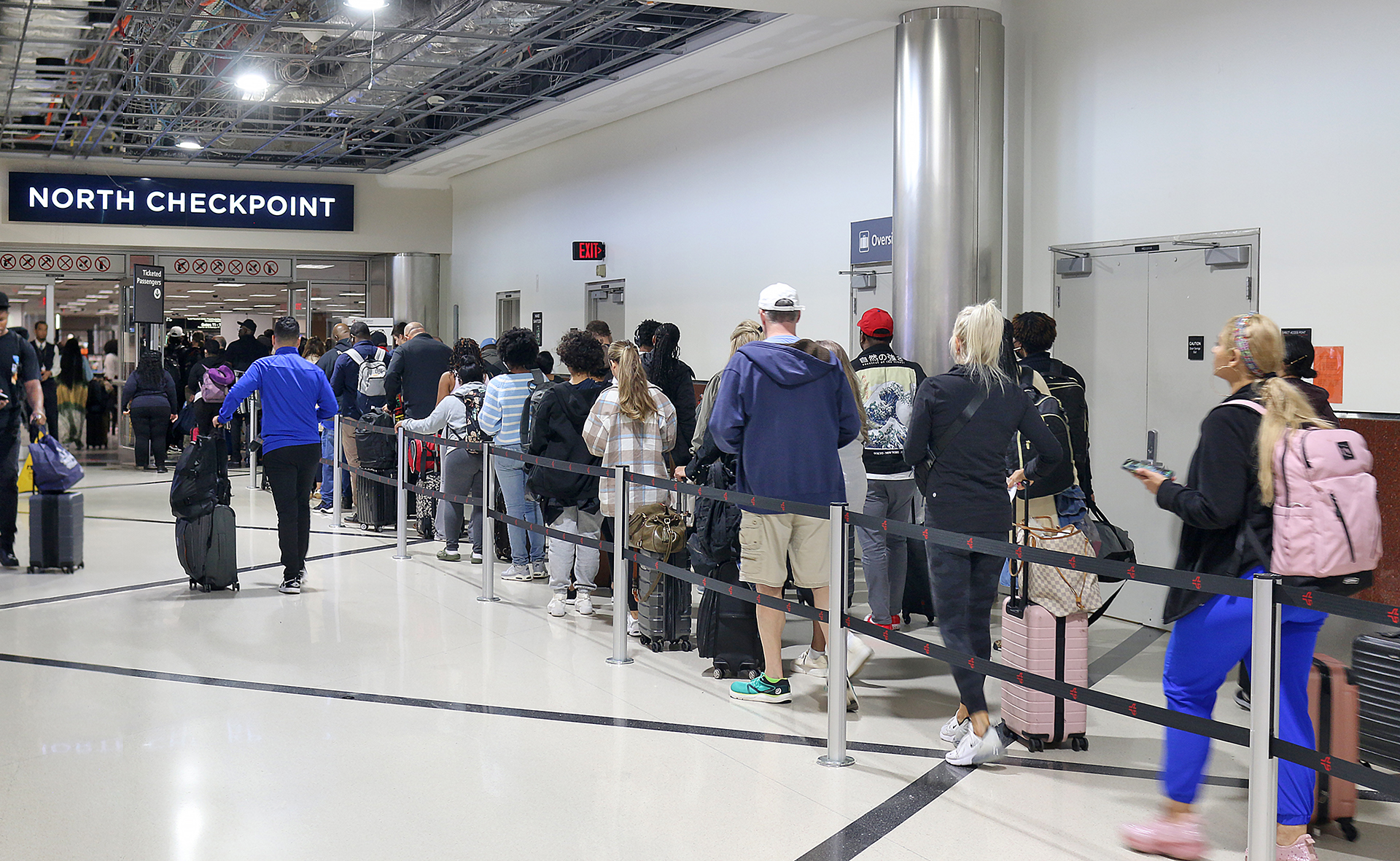What is crudely known as the One Big Beautiful Bill Act has been passed by both the Senate and the House of Representatives of the United States and signed into law on Friday, July 4, 2025 by Donald J. Trump — and one part which is buried in this massive bill is what is called a Visa Integrity Fee of $250.00 that aliens who are issued nonimmigrant visas at the time of such issuance will be required to pay in addition to existing visa fees.
Visa Integrity Fee of $250 to Be Charged to Visitors of the United States

The Visa Integrity Fee is expected to become effective as of Fiscal Year 2026, which starts on Wednesday, October 1, 2025 for the federal government of the United States. Once the fee is collected, it will supposedly be deposited into the general fund of the Treasury of the United States.
Moreover, the amount of the Visa Integrity Fee will be adjusted annually for inflation.
Travelers will be eligible for reimbursement of the Visa Integrity Fee at some time after their visas expire — as long as they do not overstay the visa expiration date by greater than five days; or engage in unauthorized work.
Increase For Visa Waiver Program Fee
The good news is that people who are citizens of 42 countries which participate in the Visa Waiver Program are not subject to the Visa Integrity Fee — but the bad news is that the fee for the Electronic System for Travel Authorization will be increasing from the current $21.00 to $40.00 through at least the year 2034. The Electronic System for Travel Authorization fee was originally $14.00 until it was increased to $21.00 effective as of Thursday, May 26, 2022 pursuant to updates in mandates from members of the House of Representatives of the United States. Of that $40.00 fee:
- $10.00 goes to the Department of Homeland Security for cost recovery
- $13.00 goes to the Treasury Department for Deficit Reduction
- $17.00 goes to the Travel Promotion Fund, which funds Brand USA
The 42 countries which participate in the Visa Waiver Program are:
| Country | Visa Waiver Program Travel Began |
|---|---|
| Andorra | October 1, 1991 |
| Australia | July 29, 1996 |
| Austria | October 1, 1991 |
| Belgium | October 1, 1991 |
| Brunei | July 29, 1993 |
| Chile | March 31, 2014 |
| Croatia | Dec. 1, 2021 |
| Czech Republic | November 17, 2008 |
| Denmark | October 1, 1991 |
| Estonia | November 17, 2008 |
| Finland | October 1, 1991 |
| France | July 1, 1989 |
| Germany | July 15, 1989 |
| Greece | April 5, 2010 |
| Hungary | November 17, 2008 |
| Iceland | October 1, 1991 |
| Ireland | April 1, 1995 |
| Israel | September 29, 2023 |
| Italy | July 29, 1989 |
| Japan | December 15, 1988 |
| Korea, Republic of | November 17, 2008 |
| Latvia | November 17, 2008 |
| Liechtenstein | October 1, 1991 |
| Lithuania | November 17, 2008 |
| Luxembourg | October 1, 1991 |
| Malta | December 30, 2008 |
| Monaco | October 1, 1991 |
| Netherlands† | July 29, 1989 |
| New Zealand | October 1, 1991 |
| Norway | October 1, 1991 |
| Poland | November 11, 2019 |
| Portugal | August 9, 1999 |
| Qatar | November 21, 2024 |
| San Marino | October 1, 1991 |
| Singapore | August 9, 1999 |
| Slovakia | November 17, 2008 |
| Slovenia | September 30, 1997 |
| Spain | October 1, 1991 |
| Sweden | July 15, 1989 |
| Switzerland | July 1, 1989 |
| Taiwan‡ | November 1, 2012 |
| United Kingdom§ | July 1, 1988 |
Former Program Countries:
The following countries were previously designated for participation in the Visa Waiver Program, but their designation was subsequently terminated:
| Country | Visa Waiver Program Travel Began | Visa Waiver Program Termination Date |
|---|---|---|
| Argentina | July 8, 1996 | February 21, 2002 |
| Uruguay | August 9, 1999 | April 15, 2003 |
† Citizens of Curacao, Bonaire, Saint Eustatius, Saba and Sint Maarten — the former Netherlands Antilles — are not eligible to travel to the United States under the Visa Waiver Program if they are applying for admission with passports from these countries.
‡ Taiwan refers only to individuals who have unrestricted right of permanent abode on Taiwan and are in possession of an electronic passport bearing a personal identification or household registration number.
§ The United Kingdom refers only to British citizens who have the unrestricted right of permanent abode in the United Kingdom — including England, Scotland, Wales, Northern Ireland, the Channel Islands, and the Isle of Man — but it does not refer to British overseas citizens, British dependent territories’ citizens, or citizens of British Commonwealth countries.
∗ Romania was designated on January 9, 2025 but that designation was not implemented before rescission on May 2, 2025.
Increase For Application Fee For I-94 Arrival and Departure Record

Moreover — immediately after Section 100007 of the Big Beautiful Bill Act which covers the Visa Integrity Fee — is Section 100008, which covers the increase by quadruple of the application fee for the I-94 arrival and departure record from six dollars to $24.00 for some international arrivals. As with the Visa Integrity Fee, this fee is expected to be adjusted each year for inflation. Exempt from completing the form include citizens of the United States, most citizens of Canada, resident aliens of the United States, and aliens with immigration visas. Of that $24.00 fee:
- 20 percent goes to the account of the Land Border Inspection Fee
- 20 percent goes to Customs & Border Protection
- 60 percent goes to the general fund of the Treasury Department of the United States
The entire Section 100007 and Section 100008 of the bill — which is also known as H.R. 1 — pertaining to the Visa Integrity Fee and the increase of the application fee for the I-94 arrival and departure record are replicated in their entirety after the conclusion of this article for your convenience.
Final Boarding Call

The reason why I say that the increases in fees will probably generate more revenue for the United States and not guarantee more revenue is because the result is generally unknown of how many people will be too discouraged to want to visit the United States because doing so will be too expensive and increasingly complex.
For a variety of reasons, the United States is already experiencing a slump in travel. The higher fees not only certainly will not help; but will more likely further exacerbate the issue, as it arguably creates an unnecessary financial barrier for international visitors to the United States — even with the aforementioned reimbursement of the Visa Integrity Fee, which increases the upfront costs of visiting the United States by 144 percent while simultaneously doing nothing to decrease the wait times for interviews.
Although I can understand why a country would want to impose restrictive visas on visitors for various reasons — keeping track of them while they are in that country; as well as to have a revenue stream — they do stand the chance of losing out on the economic benefits of the dollars of tourists and business people when the process of securing that visa is unnecessarily complicated and prohibitively expensive. Saudi Arabia, North Korea and Russia are three countries which immediately come to my mind when it comes to the hassle of getting a visa — although Saudi Arabia has been working on becoming friendlier to foreign visitors — but Brazil has been known to not exactly have the easiest or least-expensive process either; and neither has the United States.
For me, countries which have such restrictive visa policies indicate to me that they are not friendly countries; or perhaps they just do not want for you or me to visit for whatever reasons — and yes, I do understand that there are people who justifiably view the United States in that manner as well. In today’s “shrinking” world primarily due to technology, that is a potentially costly mistake, in my opinion. Restrictive visa policies may scratch the “tip of the iceberg” pertaining to greater issues within certain countries; but they do not help in promoting being part of what should be a peaceful global community.
By reducing — or, better yet, eliminating — the fees to secure a visa for a visitor, I believe that the economic benefits would more than make up for it. The fees that each per person must pay for a visa to visit the United States could instead go towards patronizing businesses and other areas of the general economy, which in turn would increase tax revenues for the government as one of many benefits. I am by no means an expert on economic policies in global economies; but I believe that charging exorbitant visa fees actually does more harm to countries economically in the long term than helps them.
At the very least, countries should do whatever is possible to strike a realistic balance in ensuring their security and charging fees to visitors: attempt to have the visa process as easy as possible for visitors to enter countries without compromising on smart security; and lower the visa fees as much as possible — or even consider eliminating them. Entering Bahrain and Mozambique are two examples of costly visas and unnecessary harassment which soured my experiences in those two countries enough to the point of where I would be just fine if I never visited them again; so I can understand someone visiting the United States feeling similar.
Idealistically, I would really like to see the day where you and I can travel anywhere in the world with few to no impediments; but with human nature being the way it is, I know that will not happen anytime soon — if at all…
…but at least the world still seems to generally be heading closer towards that goal overall — even if it is only at a glacial pace…
All photographs ©2011, ©2015, ©2016, and ©2023 by Brian Cohen.
SEC. 100007. VISA INTEGRITY FEE.
(a) Visa Integrity Fee.--
(1) In general.--In addition to any other fee authorized by
law, the Secretary of Homeland Security shall require the payment
of a fee, equal to the amount specified in this subsection, by any
alien issued a nonimmigrant visa at the time of such issuance.
(2) Initial amount.--For fiscal year 2025, the amount specified
in this section shall be the greater of--
(A) $250; or
(B) such amount as the Secretary of Homeland Security may
establish, by rule.
(3) Annual adjustments for inflation.--During fiscal year 2026,
and during each subsequent fiscal year, the amount specified in
this section shall be equal to the sum of--
(A) the amount of the fee required under this subsection
for the most recently concluded fiscal year; and
(B) the product resulting from the multiplication of the
amount referred to in subparagraph (A) by the percentage (if
any) by which the Consumer Price Index for All Urban Consumers
for the month of July preceding the date on which such
adjustment takes effect exceeds the Consumer Price Index for
All Urban Consumers for the same month of the preceding
calendar year, rounded down to the nearest dollar.
(4) Disposition of visa integrity fees.--All of the fees
collected pursuant to this section that are not reimbursed pursuant
to subsection (b) shall be deposited into the general fund of the
Treasury.
(5) No fee waiver.--Fees required to be paid under this
subsection shall not be waived or reduced.
(b) Fee Reimbursement.--The Secretary of Homeland Security may
provide a reimbursement to an alien of the fee required under
subsection (a) for the issuance of a nonimmigrant visa after the
expiration of such nonimmigrant visa's period of validity if such alien
demonstrates that he or she--
(1) after admission to the United States pursuant to such
nonimmigrant visa, complied with all conditions of such
nonimmigrant visa, including the condition that an alien shall not
accept unauthorized employment; and
(2)(A) has not sought to extend his or her period of admission
during such period of validity and departed the United States not
later than 5 days after the last day of such period; or
(B) during such period of validity, was granted an extension of
such nonimmigrant status or an adjustment to the status of a lawful
permanent resident.
SEC. 100008. FORM I-94 FEE.
(a) Fee Authorized.--In addition to any other fee authorized by
law, the Secretary of Homeland Security shall require the payment of a
fee, equal to the amount specified in subsection (b), by any alien who
submits an application for a Form I-94 Arrival/Departure Record.
(b) Amount Specified.--
(1) Initial amount.--For fiscal year 2025, the amount specified
in this section shall be the greater of--
(A) $24; or
(B) such amount as the Secretary of Homeland Security may
establish, by rule.
(2) Annual adjustments for inflation.--During fiscal year 2026,
and during each subsequent fiscal year, the amount specified in
this section shall be equal to the sum of--
(A) the amount of the fee required under this subsection
for the most recently concluded fiscal year; and
(B) the product resulting from the multiplication of the
amount referred to in subparagraph (A) by the percentage (if
any) by which the Consumer Price Index for All Urban Consumers
for the month of July preceding the date on which such
adjustment takes effect exceeds the Consumer Price Index for
All Urban Consumers for the same month of the preceding
calendar year, rounded down to the nearest dollar.
(c) Disposition of Form I-94 Fees.--During each fiscal year--
(1) 20 percent of the fees collected pursuant to this section--
(A) shall be deposited into the Land Border Inspection Fee
Account in accordance with section 286(q)(2) (8 U.S.C.
1356(q)(2)); and
(B) shall be made available to U.S. Customs and Border
Protection to retain and spend without further appropriation
for the purpose of processing Form I-94; and
(2) any amounts not deposited into the Land Border Inspection
Fee Account pursuant to paragraph (1)(A) shall be deposited in the
general fund of the Treasury.
(d) No Fee Waiver.--Fees required to be paid under this section
shall not be waived or reduced.

